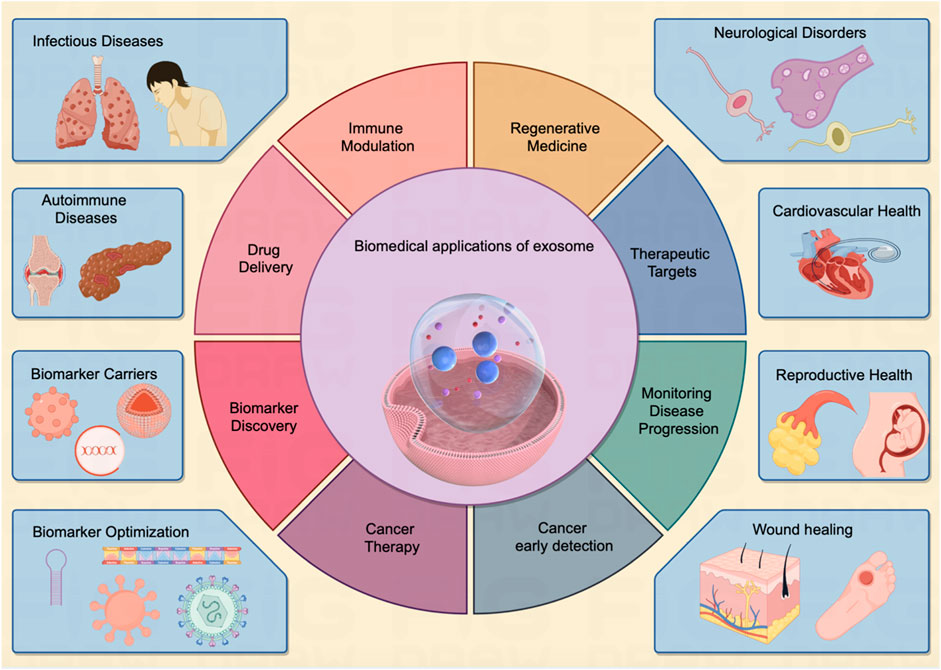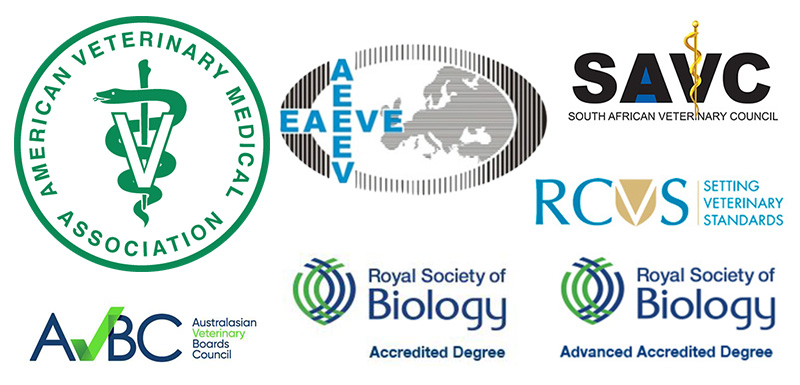Strategic Partnership Advances Sustainable Development Goals Through Healthcare Workforce Enhancement
Executive Summary
A collaborative initiative between Meritus Health, Frostburg State University, and the University System of Maryland at Hagerstown (USMH) is strengthening the regional healthcare workforce, directly contributing to several United Nations Sustainable Development Goals (SDGs). By creating a targeted educational pipeline for physician assistants (PAs), the partnership addresses critical needs in healthcare access, quality education, and local economic development, with a focus on serving rural and underserved communities. The recent placement of four new program graduates at Meritus Health exemplifies the success of this model.
Fostering Partnerships for Sustainable Goals (SDG 17)
The initiative is a prime example of a multi-stakeholder partnership designed to achieve sustainable development objectives. The collaboration leverages the strengths of each organization:
- Frostburg State University & USMH: Provide the academic framework and infrastructure for the Master of Medical Science in Physician Assistant Studies program, which began in 2019 and graduates 25 students annually.
- Meritus Health: Offers essential real-world clinical training, provides a medical director for the program, and creates a direct employment pathway for graduates.
This public-private partnership effectively mobilizes resources to build local capacity and resilience, embodying the spirit of SDG 17 by promoting effective collaborations to support the achievement of all other goals.
Improving Good Health and Well-being (SDG 3)
The core mission of the program is to advance SDG 3 by ensuring healthy lives and promoting well-being for all. It achieves this by:
- Increasing the Health Workforce: Directly addressing regional shortages of healthcare providers to improve access to care, a key target of SDG 3.
- Focusing on Underserved Populations: The curriculum and clinical rotations are specifically designed to prepare PAs for service in rural and medically underserved areas, contributing to universal health coverage.
- Enhancing Local Healthcare Capacity: The recent hiring of four graduates strengthens the local health system’s ability to meet community needs. The new physician assistants are:
- Kelly Combs
- Gabriela Scott
- Poojah Shah
- Jessica Shank
Promoting Quality Education and Decent Work (SDG 4 & SDG 8)
The partnership creates a synergistic link between education and employment, advancing both SDG 4 and SDG 8.
Contributions to Quality Education (SDG 4)
- The program provides accessible, high-quality tertiary and vocational training in a critical medical field.
- Admission preferences for students from Western Maryland and adjacent counties in Pennsylvania and West Virginia ensure that educational opportunities are targeted to the local population, promoting inclusive education.
Contributions to Decent Work and Economic Growth (SDG 8)
- The program equips graduates with specialized skills for full and productive employment.
- A dedicated track for students intending to work at Meritus Health creates a direct pipeline to decent work, reducing youth unemployment and fostering local economic growth.
- Retaining locally trained professionals supports the regional economy, as these individuals are more likely to live and work in the area long-term.
Reducing Inequalities and Building Sustainable Communities (SDG 10 & SDG 11)
By focusing on local needs, the initiative actively works to reduce inequalities and build a more sustainable and resilient community.
- Reducing Inequalities (SDG 10): The program’s mission to improve healthcare access in the Western Maryland region directly combats health disparities between urban and rural areas. By training providers who are from and understand the community, it promotes more equitable health outcomes.
- Sustainable Communities (SDG 11): Ensuring access to essential services like healthcare is fundamental to creating sustainable communities. This partnership strengthens the local health infrastructure, making the community safer, more inclusive, and more resilient.
SDGs Addressed in the Article
SDG 3: Good Health and Well-being
- The article directly addresses the “region’s growing need for healthcare access” and the “need for physicians and physician assistants in our region.” The entire initiative between Meritus Health and Frostburg State University is designed to improve health outcomes by increasing the number of available healthcare providers, particularly in “rural and underserved populations.”
SDG 4: Quality Education
- The focus of the article is the “physician assistant program” at Frostburg State University, a form of specialized tertiary education. It highlights the creation and success of this Master’s level program, which provides students with “real-world clinical training” and skills for a specific profession, thereby contributing to quality education.
SDG 8: Decent Work and Economic Growth
- The program serves as a direct pipeline to employment. The article states that a specific track was created for students “intending to work at Meritus after graduation” and that graduates receive “support for job placement with the health system.” The naming of the “four new physician assistants joining Meritus” is a clear example of the program leading to decent, skilled jobs.
SDG 17: Partnerships for the Goals
- The article emphasizes the collaborative nature of the initiative. It is described as a program “developed in collaboration with Meritus Health” and highlights that “USMH and Meritus work really well together.” The partnership between the public university system (Frostburg State/USMH) and the healthcare provider (Meritus Health) is presented as a “win-win” solution to a regional problem.
Specific SDG Targets Identified
SDG 3: Good Health and Well-being
- Target 3.c: Substantially increase health financing and the recruitment, development, training and retention of the health workforce.
- The article describes a program specifically designed for the “training” and “recruitment” of physician assistants. The focus on admitting students from the local area is a strategy for “retention,” based on the premise that “People from the area are more likely to stay in the area.”
SDG 4: Quality Education
- Target 4.4: By 2030, substantially increase the number of youth and adults who have relevant skills, including technical and vocational skills, for employment, decent jobs and entrepreneurship.
- The Master of Medical Science in Physician Assistant Studies is a program that provides graduates with highly “relevant skills” and “technical” expertise in medicine, preparing them directly for “employment” as healthcare providers.
SDG 8: Decent Work and Economic Growth
- Target 8.5: By 2030, achieve full and productive employment and decent work for all women and men…and equal pay for work of equal value.
- The program facilitates “productive employment” for its graduates. The article notes that “four new physician assistants joining Meritus” (Kelly Combs, Gabriela Scott, Poojah Shah, and Jessica Shank) are starting their careers, directly contributing to this target.
SDG 17: Partnerships for the Goals
- Target 17.17: Encourage and promote effective public, public-private and civil society partnerships.
- The collaboration between the public “University System of Maryland at Hagerstown” (USMH) and the healthcare system “Meritus Health” is a clear example of a public-private partnership designed to achieve a common goal of improving regional healthcare access.
Indicators for Measuring Progress
SDG 3: Good Health and Well-being
- Indicator (Implied): Health worker density and distribution. The article implies progress by stating the program was created to “address the region’s growing need for healthcare access” and by announcing that “four new physician assistants” are joining the local health system. The number of graduates entering the local workforce serves as a direct measure.
SDG 4: Quality Education
- Indicator: Number of graduates from a tertiary education program. The article provides a specific number: the program “graduates 25 students annually.” This is a direct quantitative indicator of the program’s output.
SDG 8: Decent Work and Economic Growth
- Indicator: Employment rate of program graduates. While not providing an overall percentage, the article gives concrete evidence of employment by stating that “four recent graduates” are set to start with Meritus Health and that the program offers “support for job placement.”
SDG 17: Partnerships for the Goals
- Indicator (Implied): Number and success of public-private partnerships. The existence of the described collaboration is itself an indicator. Its success is demonstrated through tangible outcomes like Meritus providing a “medical director and real-world clinical training” and the successful placement of graduates into the health system.
| SDGs | Targets | Indicators |
|---|---|---|
| SDG 3: Good Health and Well-being | Target 3.c: Substantially increase the recruitment, development, training and retention of the health workforce. | Number of new healthcare providers (physician assistants) joining the regional health system (e.g., the “four new physician assistants joining Meritus”). |
| SDG 4: Quality Education | Target 4.4: Substantially increase the number of youth and adults who have relevant skills, including technical and vocational skills, for employment. | Number of students graduating from the specialized program (“graduates 25 students annually”). |
| SDG 8: Decent Work and Economic Growth | Target 8.5: Achieve full and productive employment and decent work for all. | Number of graduates gaining employment in their field of study (e.g., the four named graduates starting at Meritus). |
| SDG 17: Partnerships for the Goals | Target 17.17: Encourage and promote effective public-private partnerships. | The existence and operational success of the partnership between Frostburg State University/USMH and Meritus Health. |
Source: heraldmailmedia.com







